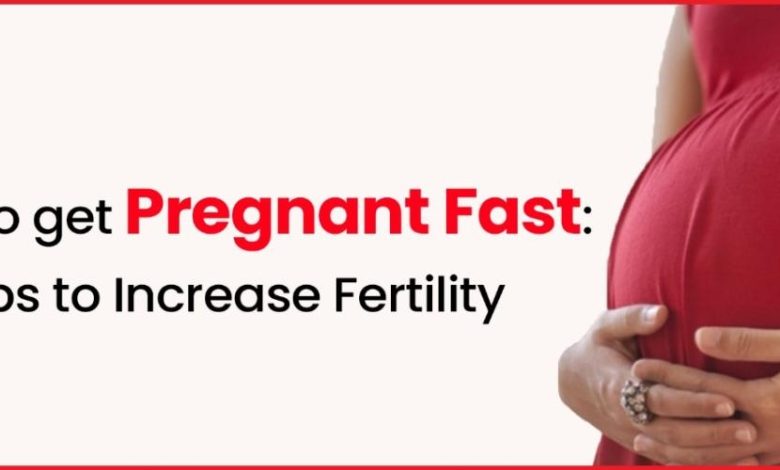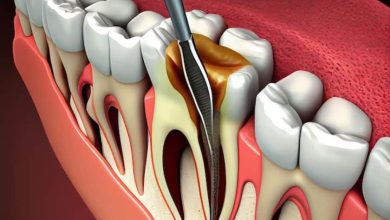Embracing Pregnancy: Tips, Insights, and How to Get Pregnant Faster

Pregnancy is a remarkable and transformative journey, but before it begins, many couples face the challenge of conception. For those eager to start or expand their family, understanding how to increase the chances of getting pregnant faster can be both exciting and daunting. In this blog, we’ll explore essential aspects of pregnancy, provide practical tips for improving fertility, and address the common question: “How to get pregnant faster?”
The Journey to Conception
Conception is a complex process involving the meeting of sperm and egg, followed by implantation in the uterus. Understanding this process can help you navigate your path to pregnancy more effectively.
How to Get Pregnant Faster
If you’re looking to conceive quickly, there are several strategies you can employ to enhance your chances. Here’s a comprehensive guide to improving fertility and accelerating the conception process:
-
Understand Your Ovulation Cycle
Timing is crucial when trying to get pregnant faster. Ovulation occurs when an ovary releases an egg, which then travels through the fallopian tube. This is the most fertile time in your cycle. To maximize your chances, track your ovulation using various methods:
- Ovulation Predictor Kits: These kits detect hormonal changes that signal ovulation, helping you identify your most fertile days.
- Basal Body Temperature (BBT): Tracking your BBT daily can reveal patterns that indicate when ovulation is occurring.
- Cervical Mucus Monitoring: Changes in cervical mucus consistency can also indicate your fertile window.
-
Maintain a Healthy Lifestyle
Your overall health can significantly impact your fertility. Both partners should focus on adopting a healthy lifestyle:
- Balanced Diet: Eat a variety of fruits, vegetables, whole grains, and lean proteins to support reproductive health.
- Regular Exercise: Moderate physical activity helps maintain a healthy weight and reduces stress, both of which are beneficial for fertility.
- Avoid Harmful Substances: Minimize alcohol consumption, quit smoking, and avoid recreational drugs, as these can negatively affect fertility.
-
Engage in Regular Intercourse
Frequent intercourse, particularly during the fertile window, increases the likelihood of conception. Aim to have regular, unprotected sex throughout your cycle, but focus especially on the days leading up to and including ovulation.
-
Consult with a Healthcare Provider
If you’ve been trying to conceive for several months without success, consider consulting a healthcare provider. They can conduct fertility assessments, provide personalized advice, and help identify any potential issues affecting your ability to conceive.
-
Consider Prenatal Vitamins
While prenatal vitamins are typically recommended once pregnancy is confirmed, starting them before conception can be beneficial. Prenatal vitamins, particularly those containing folic acid, support reproductive health and can improve your chances of a healthy pregnancy.
What to Expect During Pregnancy
Once conception occurs, the journey continues through the stages of pregnancy. Here’s a brief overview of what to expect:
First Trimester (Weeks 1-12)
The first trimester is a period of rapid development as the embryo forms vital organs and systems. Many women experience symptoms such as morning sickness, fatigue, and breast tenderness. Regular prenatal check-ups are essential during this time to monitor both maternal and fetal health.
Second Trimester (Weeks 13-26)
Often considered the most comfortable phase, the second trimester is characterized by noticeable fetal growth and development. Symptoms like morning sickness may decrease, and you might start to feel the baby’s movements. This is also a good time to focus on maintaining a healthy diet and preparing for the upcoming stages.
Third Trimester (Weeks 27-Birth)
In the third trimester, the baby’s growth accelerates, and the body prepares for labor and delivery. You may experience physical discomfort and increased anticipation as your due date approaches. Regular prenatal visits are crucial for ensuring a smooth transition to childbirth.
Conclusion
By understanding the process of conception and implementing strategies to get pregnant faster, you can enhance your chances of a successful pregnancy. Tracking ovulation, maintaining a healthy lifestyle, and seeking professional guidance are key steps in the journey to parenthood. Embrace the process with patience and optimism, and remember that each couple’s path to conception is unique. If you have any concerns or need personalized advice, consulting a healthcare provider can provide valuable support and insights.




